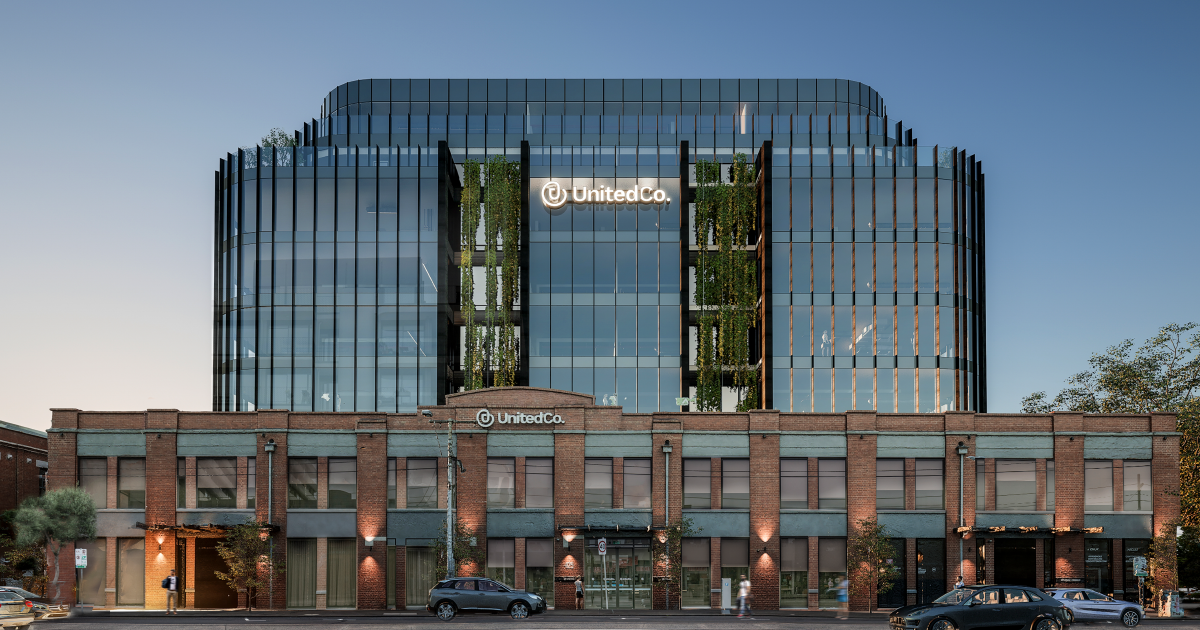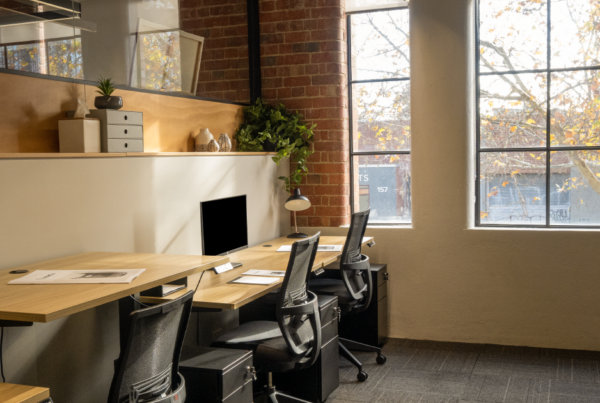
The Ultimate Guide to Finding Prime Commercial Properties to Lease
When it comes to prime commercial properties to lease, we have the ultimate guide for finding the right workspace property. The first thing to remember is, in the ever-evolving world of business, securing the right commercial property is a pivotal step towards achieving long-term success.
Whether you’re an aspiring entrepreneur launching a startup or an established company looking to expand, finding the ideal space to lease can significantly impact your operations, growth, and overall profitability. However, with a plethora of options available and a myriad of factors to consider, the search for the perfect commercial property can quickly become overwhelming.
Fortunately, in this blog post, we will guide you through the intricacies of finding the right commercial properties to lease. In summary, we will explore key considerations, strategies, and best practices to help you navigate this crucial decision-making process with confidence. Above all, assessing your business needs and evaluating location factors to understanding lease agreements and negotiating terms, we’ll equip you with the knowledge and insights to make informed choices that align with your unique requirements.
Meanwhile, with the right commercial property at your disposal, you’ll not only gain a physical space to operate your business but also create an environment that enhances productivity, attracts customers, and fosters growth. So, let’s dive into the world of commercial real estate and unlock the door to your business’s future success.
Guide for How to find the right office space in Melbourne
Key considerations for finding commercial properties to lease
When searching for commercial properties to lease, there are several key considerations that can help you make informed decisions. Here are some crucial factors to keep in mind:
1. Location
When it comes to the location of your commercial property plays a vital role in the success of your business. Consider factors such as accessibility, visibility, proximity to target customers, competitors, suppliers, and transportation options. Assess whether the area aligns with your target market and if it provides the necessary infrastructure and amenities for your business needs.
2. Space and Layout
Evaluate the size and layout of the property to ensure it meets your specific requirements. Most importantly, consider the number of rooms, office spaces, storage areas, parking facilities, and any special features you may need. Therefore, the layout should be practical and functional. Moreover, it should allow for efficient workflow and optimal use of space.
3. Budget
Determine your budget for leasing a commercial property and consider not only the monthly rent but also additional costs such as utilities, maintenance fees, insurance, and taxes. Ensure that the overall cost aligns with your financial capabilities and future projections.
4. Lease Terms and Conditions
Thoroughly review the lease agreement, paying close attention to the terms and conditions. Additionally, understand the duration of the lease, renewal options, rent escalation clauses, maintenance responsibilities, and any restrictions or limitations. Seek legal advice if necessary to ensure you fully comprehend the terms and negotiate any necessary modifications.
5. Zoning and Legal Considerations
Verify that the property is appropriately zoned for your intended business activities. Familiarize yourself with local regulations, permits, and licenses required for your specific industry. Moreover, compliance with legal and zoning requirements is essential to avoid potential legal issues or operational limitations.
6. Future Growth and Flexibility
Consider your business’s future growth plans and whether the property can accommodate expansion. Moreover, assess the flexibility of the lease agreement, including the possibility of subletting or assigning the lease if your business needs change.
7. Infrastructure and Facilities
Evaluate the existing infrastructure and facilities of the property, such as electrical systems, HVAC, internet connectivity, security systems, and amenities like restrooms or kitchen areas. Ensure they meet your operational requirements and assess any potential maintenance or upgrade costs.
8. Reputation and Image
In short, the commercial property you choose reflects your brand image and can influence customer perception. Consider the reputation and aesthetic appeal of the property, its surroundings, and the neighboring businesses. Moreover, a well-maintained and professional environment can enhance your business’s credibility and attract customers.
9. Parking and Accessibility
Evaluate the availability of parking spaces for both customers and employees. Easy accessibility for vehicles and public transportation can significantly impact foot traffic and convenience for your stakeholders.
10. Expert Advice
Consider consulting with real estate professionals, such as commercial real estate agents, lawyers, and financial advisors, who can provide valuable insights and guidance throughout the leasing process.
In conclusion, by carefully considering these factors, you can make a well-informed decision when selecting the right commercial property to lease, setting the stage for your business’s future success.
Read our latest blog Why should you consider an office space for lease?
Strategies for finding commercial properties to lease
When it comes to finding commercial properties to lease, implementing effective strategies can help streamline your search and increase your chances of finding the right space. Here are some strategies to consider:
Define Your Needs
Define your business needs and requirements. Determine the specific size, layout, amenities, and location criteria that align with your operations and target market. Most importantly, a well-defined set of requirements will help you narrow down your search and focus on properties that meet your criteria.
Leverage Online Listings and Real Estate Platforms
Utilize online resources such as commercial real estate websites, listing platforms, and property databases. These platforms allow you to filter properties based on your desired location, size, and other criteria. Regularly check for new listings and set up alerts to be notified of suitable properties as soon as they become available.
Network and Engage with Professionals
Consider building connections within the real estate industry by networking with commercial real estate agents, brokers, and property managers. They have access to a wide range of properties and can provide valuable insights and guidance throughout your search. Moreover, industry events, join real estate associations and leverage your existing professional network to expand your connections.
Drive or Walk through Target Areas
Take the time to explore the areas where you’d like to lease a commercial property. Drive or walk around the neighborhoods, noting any “For Lease” signs or properties that catch your attention. Sometimes, the best opportunities are discovered through physical exploration.
Collaborate with a Tenant Representative
Consider enlisting the services of a tenant representative or a commercial real estate agent who specializes in representing tenants. Additionally, they can assist you in identifying suitable properties, negotiating lease terms, and ensuring that your best interests are represented throughout the process. Tenant representatives are experts in the leasing market and can save you quite a lot of time and effort.
Utilize Social Media and Online Groups
Engage with social media platforms and online groups dedicated to commercial real estate. Join relevant LinkedIn groups or Facebook communities where professionals and property owners share leasing opportunities. Moreover, Engaging with these communities can provide you with insider information and connections to potential property owners.
Collaborate with Local Business Associations
Connect with local business associations or chambers of commerce in your target area. These organizations often have access to resources and can provide recommendations for available commercial properties. That is to say, they may also have dedicated listings or newsletters that highlight leasing opportunities, within their own network.
Touring
If you identify a potential property while driving or walking through your target area, take note of the contact information displayed on “For Lease” signs. Cold calling the property owner or listing agent can help you gather additional information and express your interest in the property directly.
Consider Subleasing Opportunities
Explore subleasing opportunities where existing tenants are looking to assign or sublet their lease. This can be a cost-effective option, as these spaces are often already built-out and may come with furnishings or equipment. Look for subleasing listings or connect with tenants directly to inquire about available space.
Stay Persistent and Patient
Finding the right commercial property takes time and persistence. Moreover, be patient throughout the process and remain diligent in your search. Most importantly, properties can become available at any time. Therefore, its crucial to consistently monitor listings, network, and engage with professionals to stay ahead of new opportunities.
By employing these strategies, you can maximize your chances of finding the perfect commercial property to lease that meets your business needs and positions you for success.
Learn 5 ways to save cost on office space
Best practices for commercial properties to lease
When leasing a commercial property, it’s essential to follow best practices to ensure a smooth and successful process. Here are some best practices to consider:
1. Conduct Thorough Due Diligence
Before committing to a lease agreement, thoroughly investigate the property. Conduct a comprehensive inspection to identify any potential issues or repairs needed. Review property documents, including title deeds, surveys, and building permits. Engage professionals, such as lawyers, inspectors, and engineers, to help assess the property’s condition and legal aspects.
2. Seek Professional Advice
Engage the services of professionals who specialize in commercial real estate leasing. A commercial real estate agent or broker, lawyer, and accountant can provide valuable guidance throughout the process. Their expertise can help you negotiate favorable lease terms, review legal documents, and ensure your financial and legal interests are protected.
3. Understand Lease Terms and Negotiate Wisely
Carefully review the lease agreement, paying attention to all terms and conditions. Understand the lease duration, rent structure, renewal options, responsibilities for repairs and maintenance, and any restrictions or limitations. Negotiate terms that align with your business needs, ensuring clarity on issues like rent escalations, common area maintenance (CAM) charges, and any special provisions.
4. Assess the Financial Implications
Evaluate the financial impact of the lease agreement on your business. Consider not only the monthly rent but also additional costs such as utilities, insurance, taxes, and potential maintenance fees. Prepare a detailed budget to understand the affordability and financial feasibility of the property. Clarify and plan for contingencies. Factor in potential rent increases over the lease term.
5. Consider Lease Flexibility
Consider business changes and evaluate the flexibility of the lease agreement. Most importantly, assess provisions for expansion, contraction, subleasing, or assignment of the lease. Therefore, having flexibility within the lease can accommodate your evolving needs and help avoid potential penalties or limitations down the line
6. Review Insurance Requirements
Verify the insurance requirements outlined in the lease agreement and ensure you comply with them. Consult with an insurance professional to determine the appropriate coverage for your business. Consider liability insurance, property insurance, and any additional coverage specific to your industry or the property’s requirements.
7. Understand Common Area and Maintenance Responsibilities
In summary, you must consider the responsibilities for common areas and maintenance costs. Determine who is responsible for repairs, maintenance, and improvements within the property. Likewise, understand how common areas are defined, who maintains them, and how related costs are allocated. Most importantly, ensure these responsibilities are clearly outlined in the lease agreement.
8. Plan for Lease Expiration and Renewal
Develop a strategy for the lease expiration and renewal process. Determine the timeline for evaluating whether to renew, renegotiate, or relocate. Anticipate any required notice periods for termination or renewal and plan accordingly. Consider engaging a real estate professional to assist with lease renewal negotiations or exploring other leasing options.
9. Communicate and Document Clearly
Maintain clear and open communication with the property owner, landlord, or property management team. Address any concerns, repairs, or issues promptly and document all communication in writing. Additionally, this helps avoid misunderstandings and provides a record of agreements or resolutions reached during the lease term.
10. Maintain a Strong Landlord-Tenant Relationship
Additionally, consider nurturing a positive and professional relationship with the property owner or landlord. Promptly fulfill your obligations under the lease agreement, such as paying rent on time and maintaining the property. Moreover, communicate any necessary changes or concerns respectfully and work collaboratively to resolve any issues that may arise.
In conclusion, by adhering to these best practices you can best navigate the leasing process with confidence and safeguard your interests. Therefore, you can foster a successful relationship with the property owner or landlord, which in short, contributes to business development.
Commercial Properties to Lease at United Co.
Above all, United Co. offers a range of flexible leasing arrangements, suited to your business needs. From casual to private offices, enterprise solutions, meeting and boardrooms, to a luxurious event space, United Co. helps businesses thrive in a collaborative and innovative environment.
Get in touch today if you are looking for commercial properties to lease!



